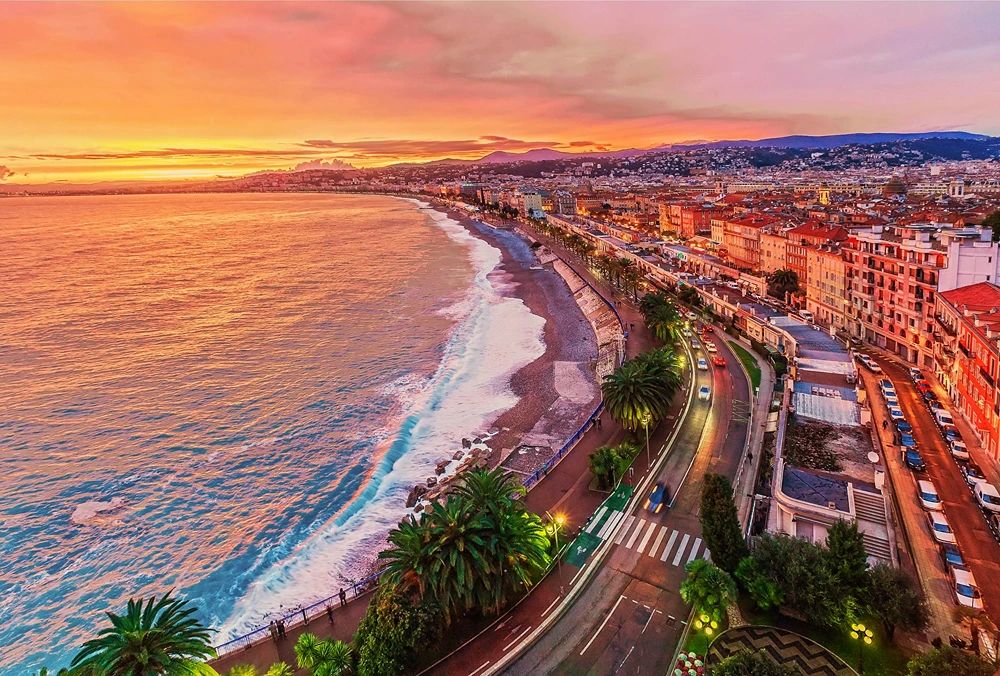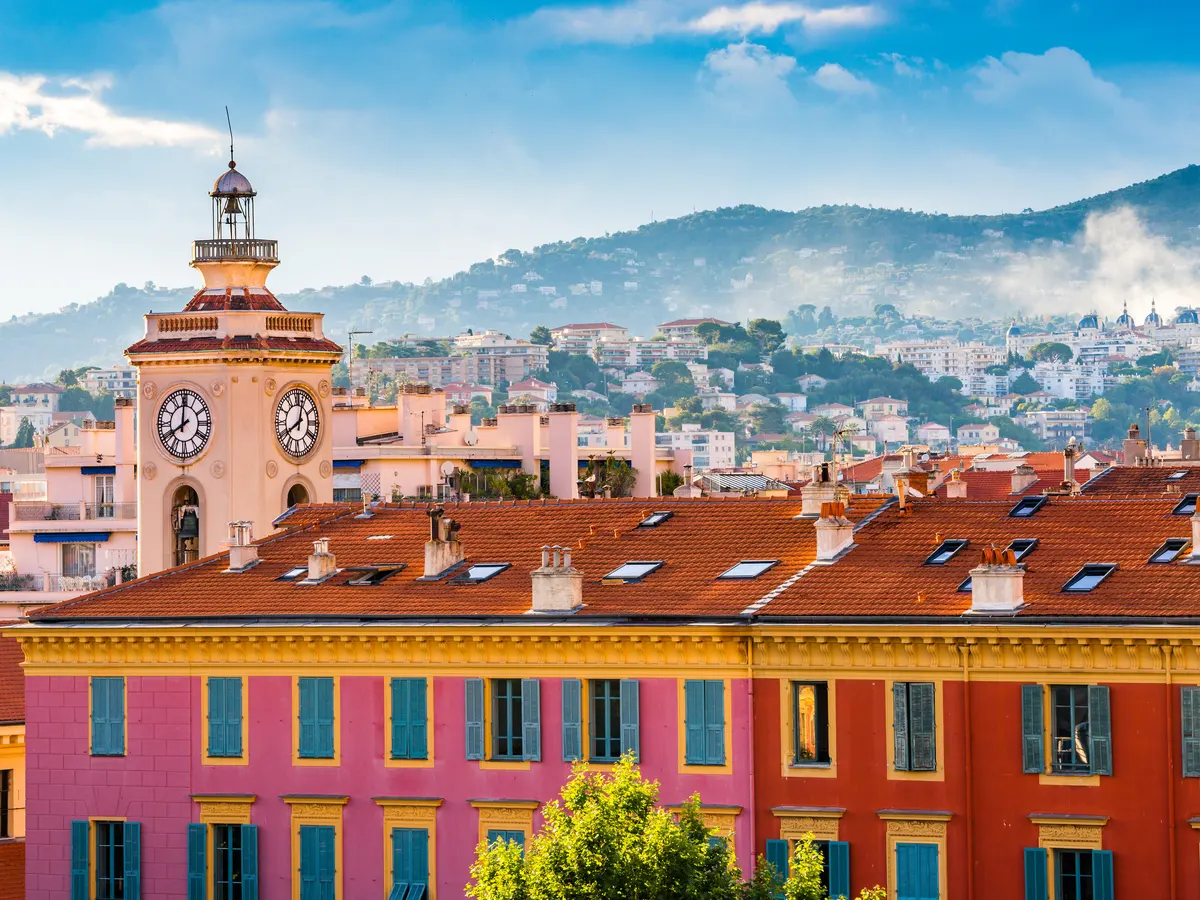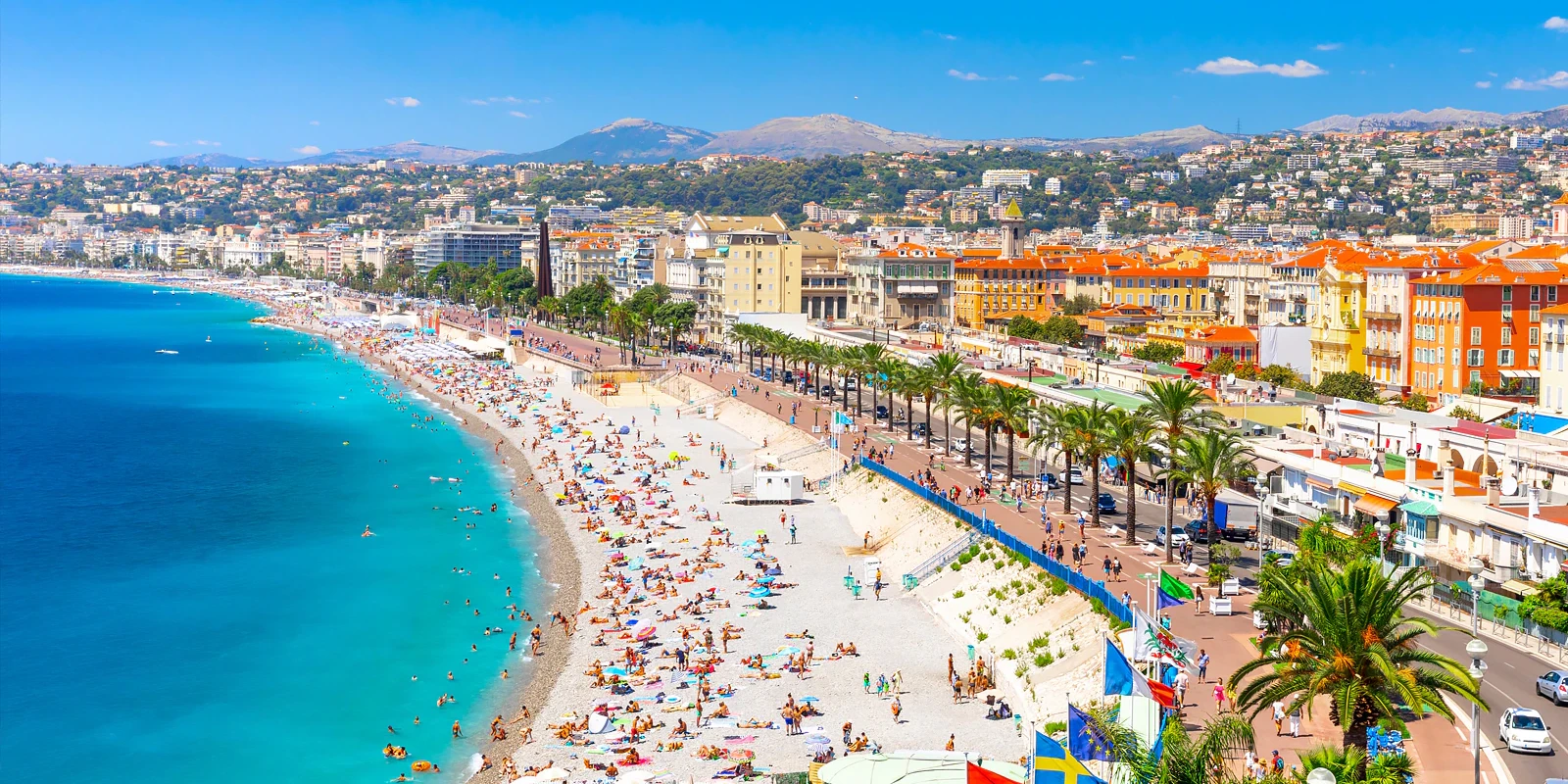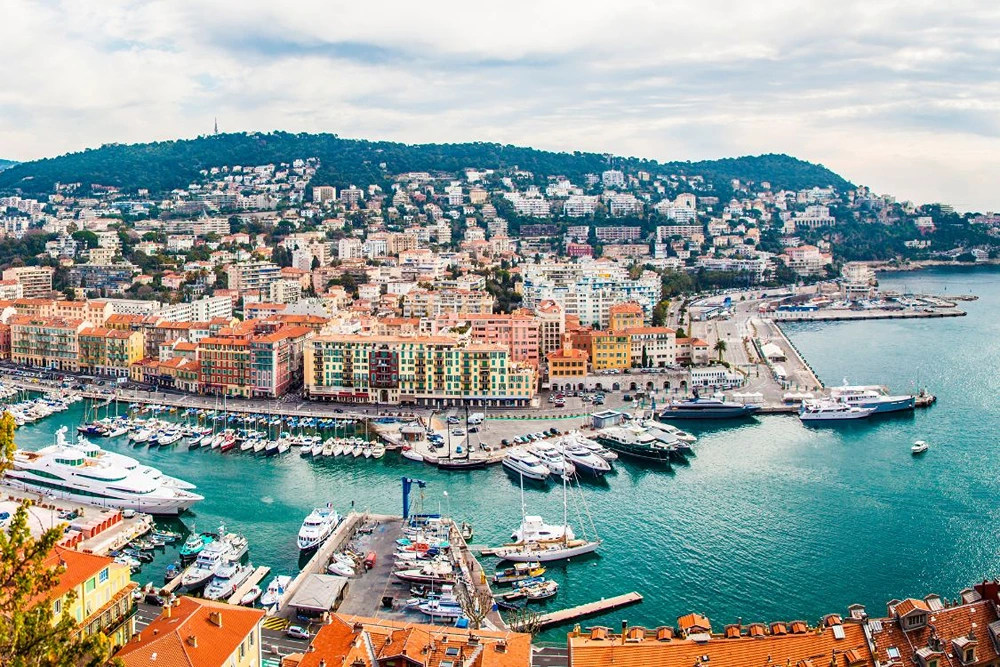Travel Resources
Before you embark on your journey to Nice, consider these valuable resources:
- Flights: Find affordable options using our flight search tool.
- Travel Insurance: Ensure peace of mind with comprehensive coverage.
- Car Rental: Explore the city and surrounding areas at your own pace.
- Tours: Discover the best experiences with trusted local operators.
Packing Checklist: Don’t forget essentials like sunscreen and beachwear.

Some History First
Nice boasts a rich and fascinating history that spans millennia. Founded around 350 BCE by Greek sailors from Marseille, the city was named Nikaia after Nike, the Greek goddess of victory. Throughout the centuries, Nice has been influenced by various cultures, including Roman, Italian, and French. In the 19th century, Nice became a popular winter resort for European aristocrats, particularly the British, leading to the construction of the famous Promenade des Anglais.
Nice Today
Today, Nice is a vibrant, cosmopolitan city that seamlessly blends its historical charm with modern amenities. With a population of about 340,000, it’s the fifth-largest city in France and a major tourist destination. The city is renowned for its beautiful beaches, world-class museums, and vibrant cultural scene. Nice’s economy is primarily driven by tourism, technology, and services, making it a dynamic place to visit or live.
Is Nice Safe?
Nice is generally considered a safe city for tourists and residents alike. The city has implemented increased security measures following past incidents, including enhanced police presence in tourist areas. However, as with any popular tourist destination, it’s important to remain vigilant. Be aware of pickpocketing in crowded areas and on public transport, particularly during peak tourist seasons. It’s advisable to take standard precautions such as keeping valuables secure and being aware of your surroundings.
Where is Nice?
Nice is strategically located on the southeastern coast of France, in the heart of the French Riviera (Côte d’Azur). It is the capital of the Alpes-Maritimes department in the Provence-Alpes-Côte d’Azur region. Nestled between the Mediterranean Sea and the foothills of the Alps, Nice enjoys a unique geographical position. The city is approximately 30 km from the Italian border, making it an excellent base for exploring both the French and Italian Rivieras.
Latest Articles
From The Area
What is the Best Time to Visit Nice?
Nice enjoys a Mediterranean climate, making it a year-round destination. However, the best time to visit depends on your preferences:
- Spring (April to June): Mild temperatures and fewer crowds make this an ideal time for sightseeing.
- Summer (July to August): Peak tourist season with warm temperatures perfect for beach activities, but expect larger crowds and higher prices.
- Fall (September to October): Pleasant weather and reduced tourist numbers offer a great balance.
- Winter (November to March): Mild but can be rainy. The famous Nice Carnival takes place in February, attracting many visitors.
How to Get to Nice & Around
Nice is well-connected and easy to access:
- By Air: Nice Côte d’Azur Airport (NCE) is France’s third-busiest airport, with flights from major cities worldwide.
- By Train: High-speed TGV trains connect Nice to Paris and other major French cities.
- By Bus: Long-distance buses offer budget-friendly options from various European cities.
Getting around Nice:
- Public Transport: An efficient network of trams and buses covers the city. Consider purchasing a multi-day pass for convenience.
- Vélo Bleu: Nice’s bike-sharing system is a great way to explore the city.
- Walking: Many attractions in the city center are within walking distance.
- Taxis and Ride-sharing: Readily available but can be expensive during peak times.
Things to Do in Nice
Nice offers a wealth of attractions and activities:
- Promenade des Anglais: The iconic 7km seafront promenade is perfect for strolling, cycling, or people-watching.
- Vieux Nice (Old Town): Explore narrow streets, colorful buildings, and bustling markets.
- Castle Hill (Colline du Château): Climb or take the elevator for panoramic views of the city and bay.
- Museums: Visit world-class institutions like the Musée Matisse, MAMAC (Museum of Modern and Contemporary Art), and the Marc Chagall National Museum.
- Beaches: Enjoy the pebbly beaches along the coast, both public and private.
- Nice Cathedral: Admire the baroque architecture of this 17th-century cathedral.
- Place Masséna: The city’s main square is a hub of activity and beautiful architecture.
Where To Stay In Nice
Nice offers accommodation options to suit every budget and preference:
- Promenade des Anglais: Luxury hotels with sea views.
- Vieux Nice (Old Town): Charming boutique hotels and vacation rentals in a historic setting.
- Jean-Médecin: Mid-range options near shopping and transportation.
- Cimiez: Upscale neighborhood with a more residential feel.
- Port Area: Modern apartments and hotels with a local vibe.
Book in advance during peak season (July-August) and major events like the Nice Carnival.

What To Eat In Nice
Nice’s cuisine is a delightful blend of Provençal and Italian influences:
- Salade Niçoise: The famous salad originating from Nice.
- Socca: A crispy chickpea pancake, a must-try local street food.
- Pissaladière: An onion tart with anchovies and olives.
- Ratatouille: A vegetable stew popular in the region.
- Daube Niçoise: A beef stew cooked in red wine.
- Pan Bagnat: A sandwich version of Salade Niçoise.
- Rosé Wine: The region is known for its excellent rosé wines.
Don’t miss the vibrant Cours Saleya market for fresh produce and local specialties.
Entry & Exit Requirements
As part of France, Nice follows the Schengen Agreement:
- EU citizens: Can enter with a valid ID card or passport.
- Non-EU citizens: Generally need a valid passport and may require a Schengen visa. Check specific requirements based on your nationality.
- Stays longer than 90 days: May require a long-stay visa or residence permit.
Always check the latest entry requirements before your trip, as they can change.
What To Pack For Your Trip
Consider these essentials when packing for Nice:
- Comfortable walking shoes for exploring the city
- Sunscreen, sunglasses, and a hat for sun protection
- Beach essentials including a swimsuit and beach towel
- Smart-casual outfits for dining out
- A light jacket or sweater for cooler evenings, especially in spring and fall
- Adapter plugs for European outlets
- Reusable water bottle to stay hydrated
Remember to pack any necessary medications and a copy of your travel insurance.
FAQs
The official currency of France is the Euro (EUR).
While French is the official language, many locals in tourist areas speak English. Learning basic French phrases can enhance your experience.
Yes, major credit cards are widely accepted in most establishments in Nice.
Explore nearby destinations such as Cannes, Monaco, and Antibes for a taste of the French Riviera’s charm.



